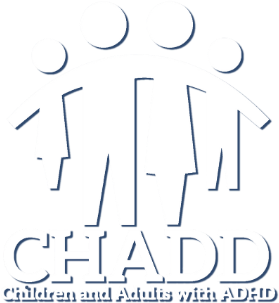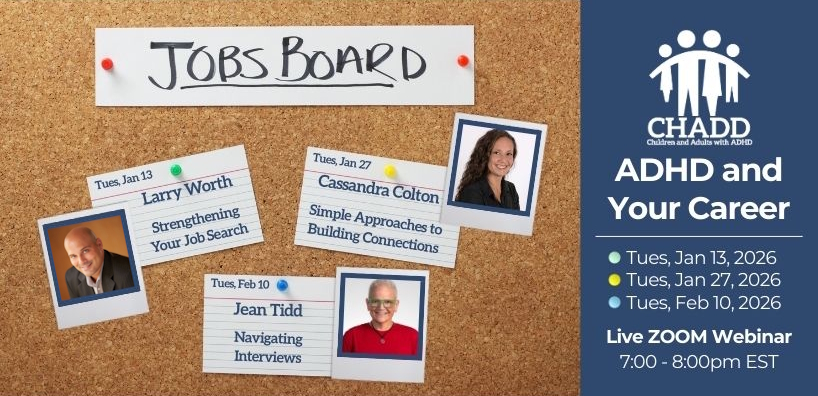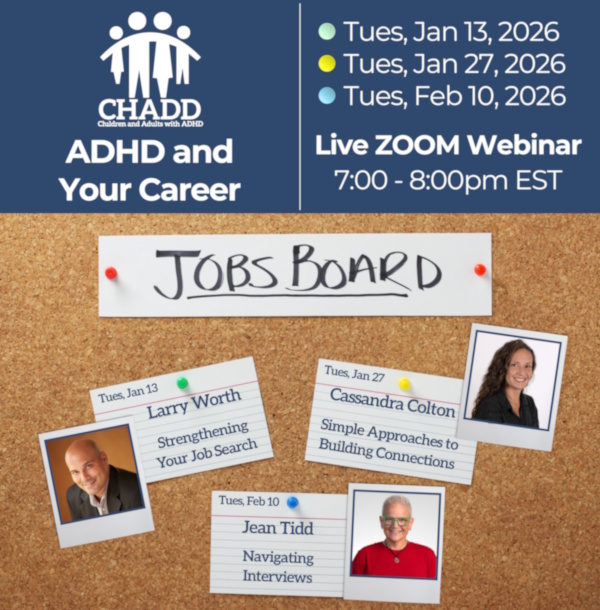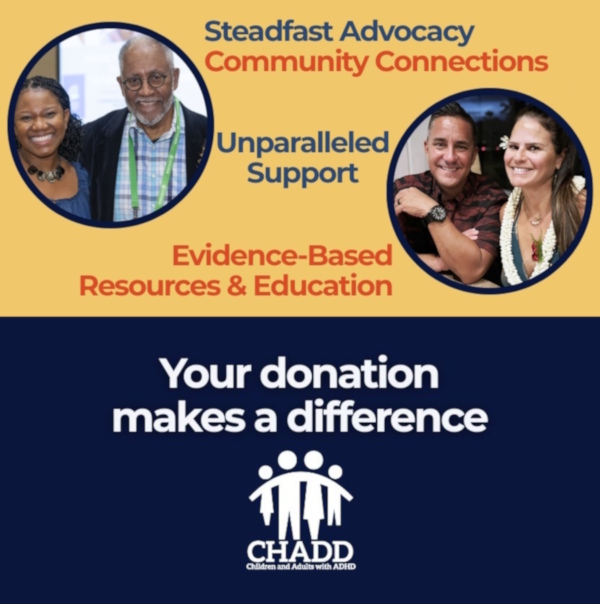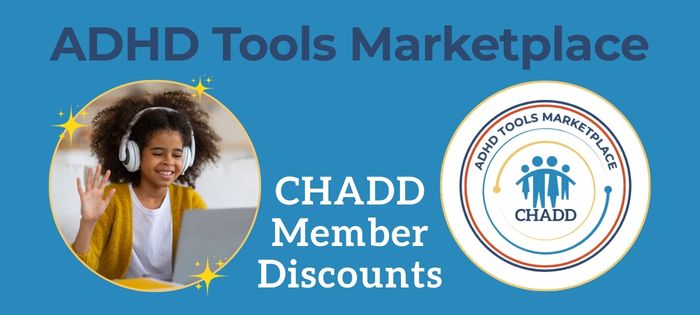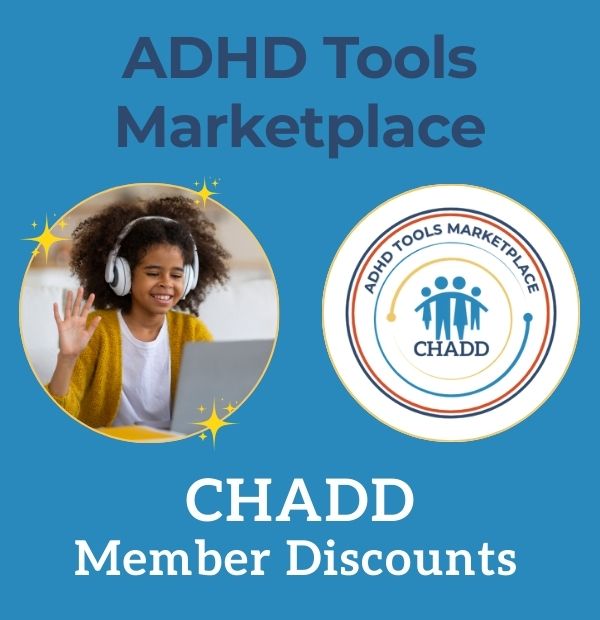Online Communities
ADHD in the News 2026-02-12
February 12, 2026Psychologists underserve adults with ADHD
ADHD Identified as Causal Risk Factor for Coronary Artery Disease and Heart Failure
ADHD Symptoms Predict Distinct Creative Problem-Solving Styles and Superior Solving Ability
ViewFebruary 5, 2026
February 5, 2026Is a Medication Holiday an Option for Your Child with ADHD?
Watch Now: Using Cultural Humility to Engage Black Families
ViewEvents
-
Training on ADHD | Self-Paced Online Courses
November 1, 2024—November 1, 2034
Register -
Listen to podcasts about ADHD
December 1, 2025—November 1, 2034
Register -
ADHD and Your Career: Navigating Interviews
February 10, 2026—February 10, 2026 | 7 PM ET
Register -
Using Cultural Humility to Engage Black Families About ADHD
February 4, 2026 | 2:00 PM
-
ADHD and Your Career: Simple Approaches to Building Connections
January 27, 2026—January 27, 2026 | 7 PM ET
Register -
ADHD and Your Career: Strengthening Your Job Search
January 13, 2026—January 13, 2026 | 7 PM ET
Register
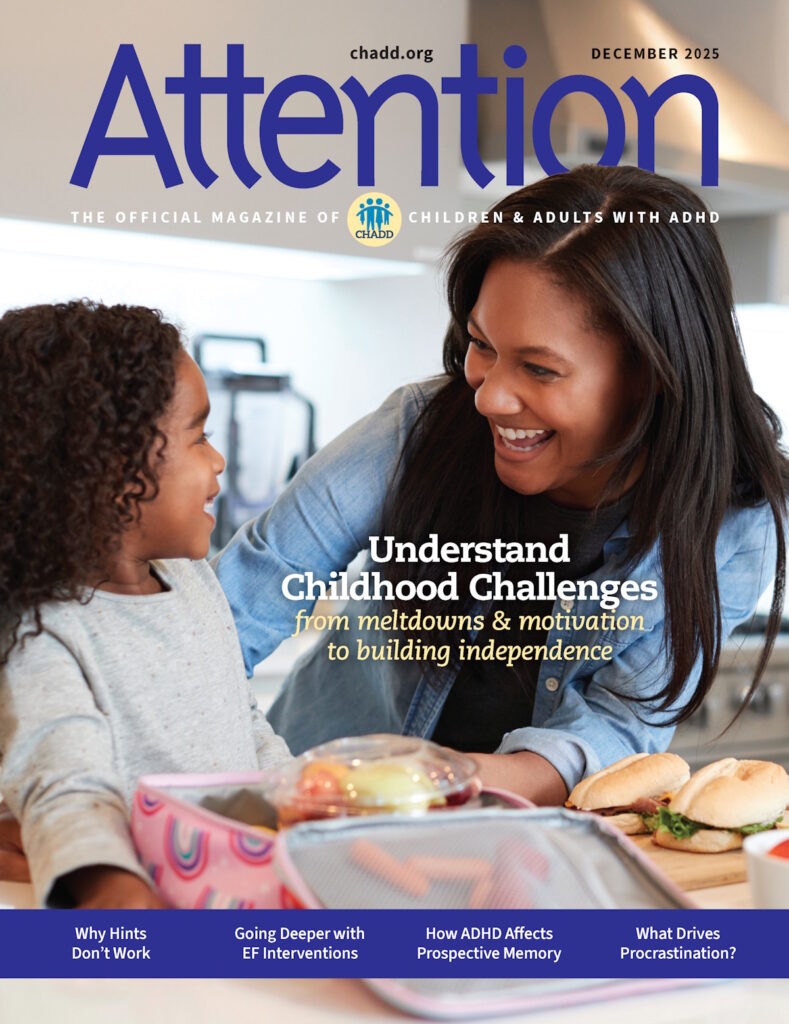
Attention Magazine
Recognized for its excellence, CHADD’s bimonthly magazine is rich in practical information, clinical insights, and evidence-based strategies for managing ADHD.
LEARN MORE


